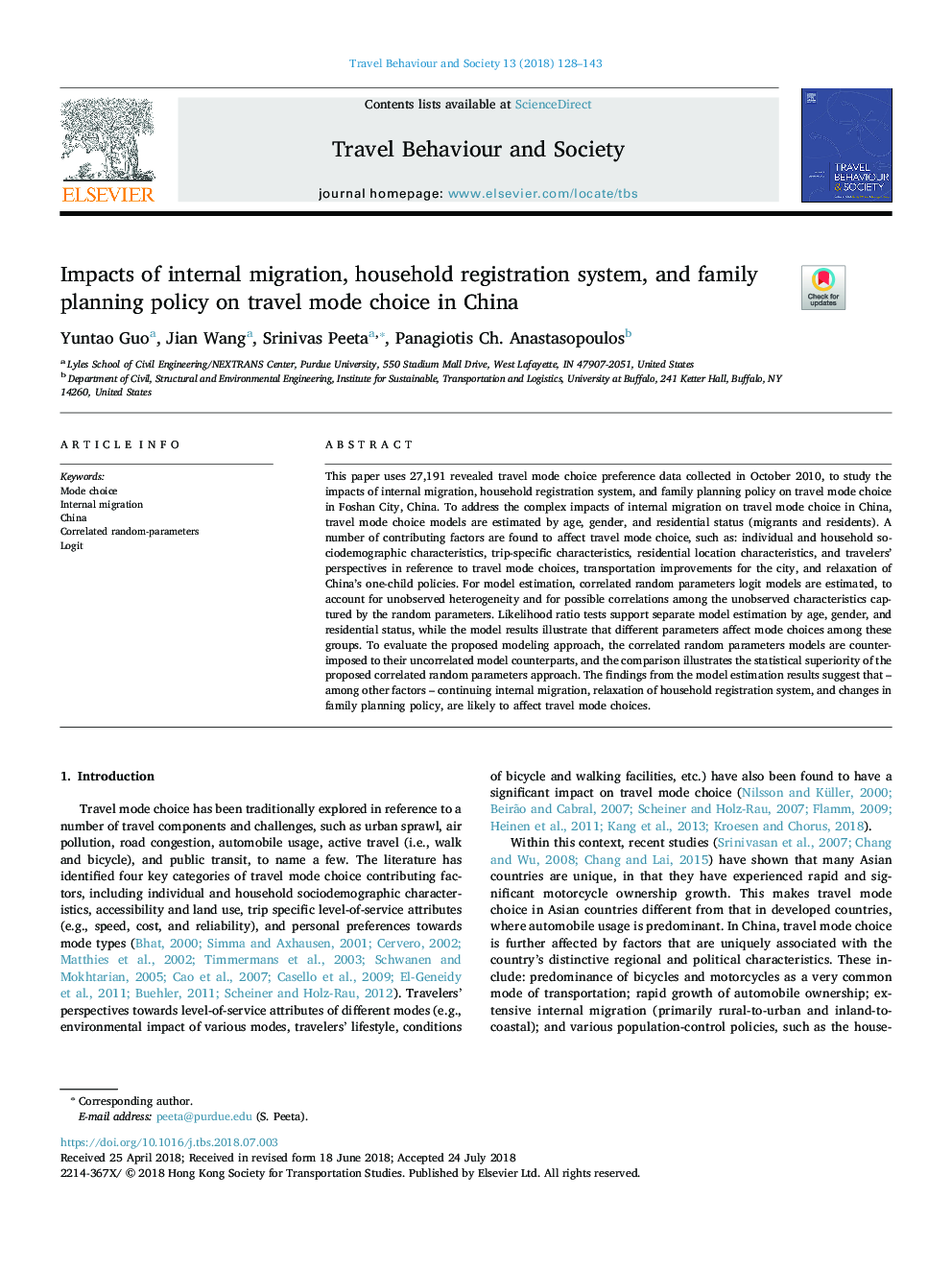| Article ID | Journal | Published Year | Pages | File Type |
|---|---|---|---|---|
| 6576262 | Travel Behaviour and Society | 2018 | 16 Pages |
Abstract
This paper uses 27,191 revealed travel mode choice preference data collected in October 2010, to study the impacts of internal migration, household registration system, and family planning policy on travel mode choice in Foshan City, China. To address the complex impacts of internal migration on travel mode choice in China, travel mode choice models are estimated by age, gender, and residential status (migrants and residents). A number of contributing factors are found to affect travel mode choice, such as: individual and household sociodemographic characteristics, trip-specific characteristics, residential location characteristics, and travelers' perspectives in reference to travel mode choices, transportation improvements for the city, and relaxation of China's one-child policies. For model estimation, correlated random parameters logit models are estimated, to account for unobserved heterogeneity and for possible correlations among the unobserved characteristics captured by the random parameters. Likelihood ratio tests support separate model estimation by age, gender, and residential status, while the model results illustrate that different parameters affect mode choices among these groups. To evaluate the proposed modeling approach, the correlated random parameters models are counter-imposed to their uncorrelated model counterparts, and the comparison illustrates the statistical superiority of the proposed correlated random parameters approach. The findings from the model estimation results suggest that - among other factors - continuing internal migration, relaxation of household registration system, and changes in family planning policy, are likely to affect travel mode choices.
Keywords
Related Topics
Life Sciences
Environmental Science
Management, Monitoring, Policy and Law
Authors
Yuntao Guo, Jian Wang, Srinivas Peeta, Panagiotis Ch. Anastasopoulos,
